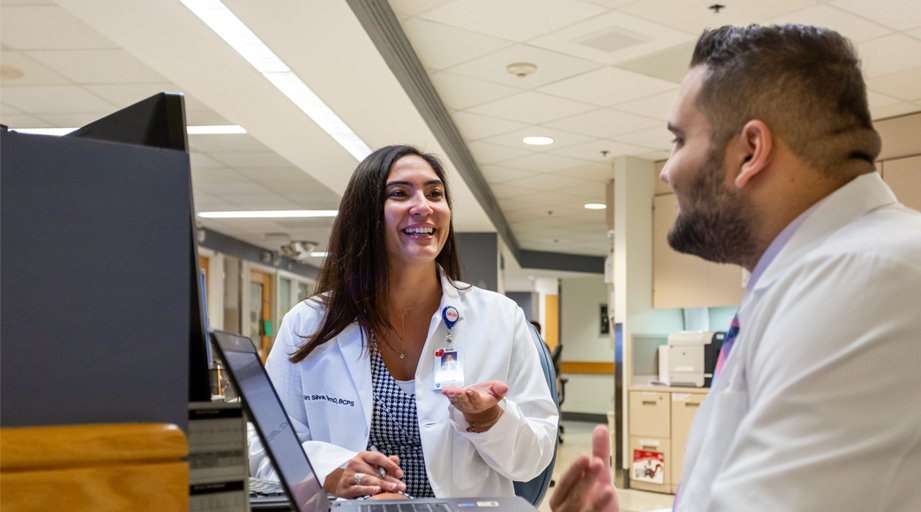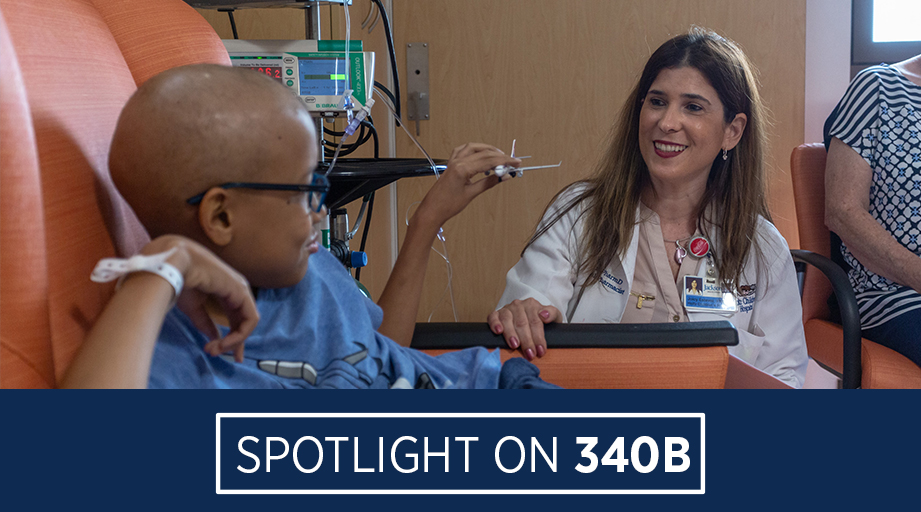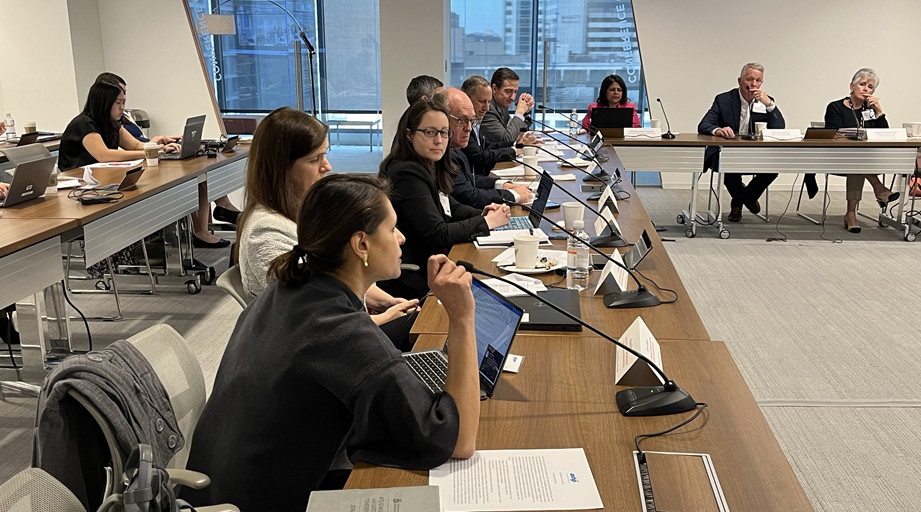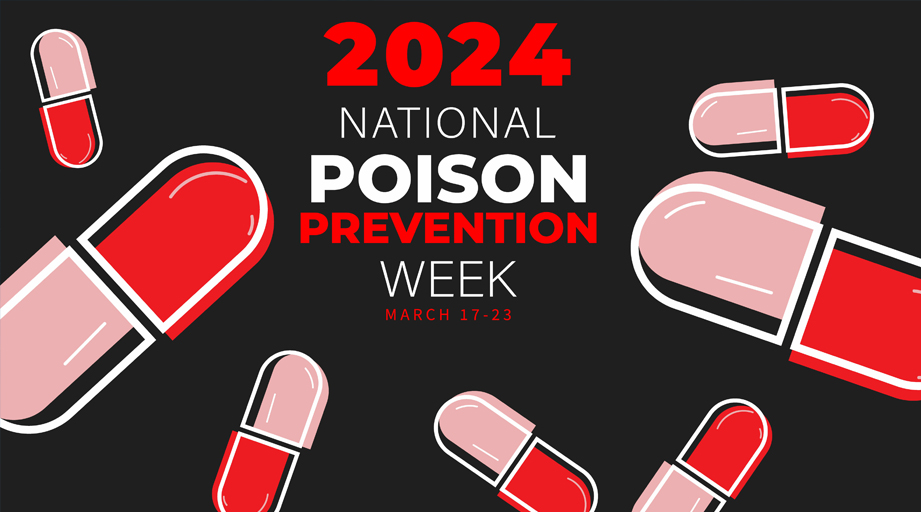
As Louisiana confronted its latest COVID-19 surge, clinicians at Ochsner Health realized they needed to vastly scale up outpatient monoclonal antibody therapy to keep patients from getting critically ill and occupying scarce hospital beds.
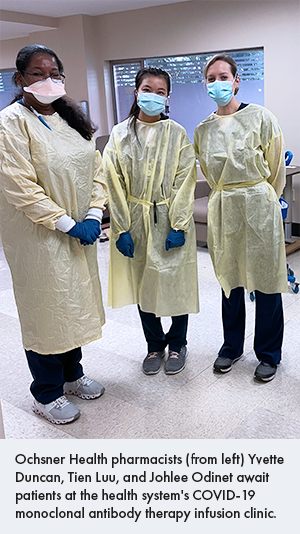 Faced with a shortage of nurses to administer infusion therapy, the health system deployed “pods” — each staffed by a pharmacist, a nurse, and three paramedics — to treat up to 140 SARS-CoV-2-positive patients per day, said Myra Thomas, assistant vice president of pharmacy at Ochsner Medical Center in New Orleans.
Faced with a shortage of nurses to administer infusion therapy, the health system deployed “pods” — each staffed by a pharmacist, a nurse, and three paramedics — to treat up to 140 SARS-CoV-2-positive patients per day, said Myra Thomas, assistant vice president of pharmacy at Ochsner Medical Center in New Orleans.
Under this model, a nurse establishes the infusion line and then works with the pharmacist and paramedics to monitor and chart each patient during and after the infusion session.
Of the approximately 9,000 patients who received monoclonal antibody therapy at Ochsner’s facilities through late August, only about 30 have had to be admitted, Thomas said.
“That has been a game changer for us,” she said Aug. 25. “Had we not been able to collaborate and pull this model together, I don’t know what we would have done. We’ve been past capacity for over a month. This is what has held the line for us.”
Thomas said the success of Ochsner’s infusion clinic model has prompted conversations about having pharmacists similarly pair with nurses in cancer chemotherapy infusion clinics.
Ochsner first started administering anti-COVID-19 monoclonal antibody therapy in November 2020. Thomas said the original clinic, staffed by nurses and led by Nursing Director for Emergency Medicine Crystal Risinger, performed roughly 40 infusions per day during the winter peak. But daily demand fell to single digits as COVID-19 cases declined in the spring and early summer.
When cases began surging again in July, predictive modeling prompted dire warnings about Ochsner’s ability to maintain inpatient capacity.
Thomas said the emergency department, with a planned maximum capacity of 180 patients per day, was routinely flooded with about 300 patients each day, many of them needing care for conditions other than COVID-19. Meanwhile, the list of SARS-CoV-2-positive patients who qualified for infusion therapy swelled to 750 names, exceeding the capacity of nursing to manage without help.
So the staff brainstormed and confirmed that state pharmacy board regulations for vaccination also permit qualified pharmacists to administer medications, including monoclonal antibody therapy. Thomas said several pharmacists already met state requirements, had an active medication administration certificate on file with the board, and were ready to undergo training in infusion therapy and pump management, pass a competency assessment, and staff the clinic.
“I can’t say kudos enough to the pharmacy team here. In desperate times, they showed up and they were innovative. And because of them, we’ve reached more patients than we ever thought possible,” Risinger said.
The pharmacy team at UK Specialty Pharmacy & Infusion Services in Lexington, Kentucky, similarly stepped up to meet the community’s need for COVID-19 monoclonal antibody therapy. But instead of providing the treatment as an IV infusion, the pharmacist-run service administers the therapy as a set of subcutaneous injections.
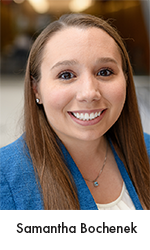 “We don’t really have any nurses to administer the infusion. But we do have pharmacy resources to administer subcutaneous injections,” explained Samantha Bochenek, director of infusion pharmacy services.
“We don’t really have any nurses to administer the infusion. But we do have pharmacy resources to administer subcutaneous injections,” explained Samantha Bochenek, director of infusion pharmacy services.
Bochenek said a pharmacist or pharmacy technician schedules patients as referrals flow into the specialty pharmacy work queue. Registration takes place over the phone when the patient arrives at the facility, and a pharmacist escorts the patient to the treatment room, checks the person’s vital signs, and draws the monoclonal antibody preparation into four syringes, as described in the product’s emergency use authorization.
Each injection takes about 30 seconds, and the entire medication handling and injection process takes about 15 minutes. After finishing the injections, the pharmacist checks the patient’s vital signs, updates the medication administration record, monitors the patient for an hour, asses vital signs again, and then escorts the patient to the parking lot.
Bochenek said UK HealthCare had administered COVID-19 monoclonal antibody therapy to 88 patients at an infusion clinic that operated from Dec. 1, 2020, to March 14, 2021. After that site closed down, the health system’s infusion centers administered the therapy to eight patients between March 15 and Aug. 5.
Bochenek said the new pharmacist-managed clinic treated more patients during its first two weeks of operation than the previous clinic did during the earlier COVID-19 wave — a fact she described as “astonishing.”
The pharmacists who have taken shifts at the new clinic include on-call staff, people who normally have “seven-on seven-off” schedules, and pharmacy residents, Bochenek said. She credited her postgraduate year 2 specialty pharmacy administration leadership resident with getting the new clinic up and running.
“He did a phenomenal job and really has organized that schedule, organized a lot of the training, to be able to get the pharmacists up to speed,” Bochenek said.
She added the patients have been tolerating the subcutaneous doses well.
“There is some stinging upon administration of the injections. But it subsides in a few minutes,” she said. “The patients ... really want therapy. So we haven’t had any pushback from any of our patients.”
Thomas said Ochsner’s clinical team considered administering the monoclonal antibody therapy subcutaneously. But the main campus opted for the IV infusion route because of concerns that patients might balk when told they would need four subcutaneous injections to get the required dose.
Thomas noted that Ochsner has tested subcutaneous COVID-19 monoclonal antibody therapy at a few smaller facilities that lack extensive pharmacy support. She said the effort has gone well and is likely to be expanded at these sites.
Medication Safety Office Johlee Odinet said Ochsner’s new clinic runs seven days a week at the main campus, from about 7 a.m. to 5:30 p.m., and operates a total of 27 infusion chairs in two infusion pods.
Odinet said patients are greeted by one of the unit’s paramedics on arrival, assigned to an infusion chair, and their vital signs are taken. The intake process includes education about the monoclonal antibody therapy, fall risk assessment, and medication safety questions.
“Once we’ve assessed that they have no contraindications to the medication, we’re able to enter the standing order, which gets verified by pharmacy, and grab the medication from the Pyxis to begin warming up to room temperature and starting their infusion,” Odinet said.
She said the paramedics have been “absolutely wonderful to partner with” on this project.
“They often sit with a patient who’s feeling anxious or hold the hand of a younger patient who’s nervous about needles and talk them through the experience,” Odinet said.
When the infusion is completed, patients spend an hour in an observation pod, where a pharmacist is available for additional counseling.
Thomas said Ochsner has supplemented its pharmacy team with new pharmacy school graduates who assisted with COVID-19 vaccination clinics as students. She said the graduates are undergoing board certification but haven’t yet entered the workforce. The students are onsite “PRN” and working full-time hours; a few have been offered permanent positions.
The new pharmacists who aren’t trained for the infusion clinic help staff Ochsner’s ongoing COVID-19 vaccine clinics, Thomas said.
“We are still going gangbusters on vaccination. However, we have shifted our model,” Thomas said. Instead of holding mass vaccination clinics, the health system’s mobile unit is holding walk-up clinics at a local mall, parks, churches, high schools, and other neighborhood sites. Ochsner is also administering COVID-19 vaccines to inpatients.
Thomas said the infusion clinic treats vaccinated and unvaccinated patients. Many patients who haven’t been vaccinated against COVID-19 say they plan to do so 90 days after receiving the passive immunotherapy, when they are again eligible for vaccination.
“We’re hearing quite a few people who say, ‘I’ve learned my lesson, I’m going to get it. I don’t want this again,’” Thomas said.
Tom Kraus, vice president of ASHP’s Office of Government Relations, said pharmacists are demonstrating their ability to administer monoclonal antibody therapies for COVID-19. But he said the authority to provide this care is “a patchwork that varies state by state.”
“In order for pharmacists to provide these services at scale, we need the federal government to authorize pharmacists to order and administer COVID-19 therapies nationwide,” he said.
For access to ASHP' free tools regarding the pandemic, including our COVID-19 Vaccine Confidence Toolkit, visit the COVID-19 Resource Center and the COVID-19 Community at ASHP Connect.

